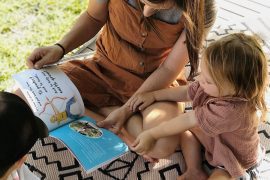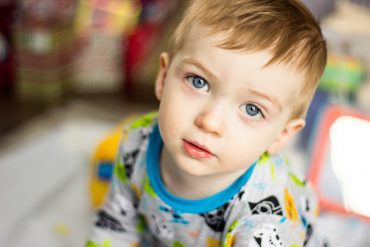I explained why it’s important for me to stop him from hitting me. We discussed consent, respecting other’s bodies, and practicing safer ways to manage his big feelings. We also talked about how important it is that we both make sure he’s getting enough to eat.
We problem solved and my son had an opportunity to apologize. However, his apology wasn’t forced or contrived. It wasn’t a necessary step to be freed from a timeout. He listened to how I was feeling, and he naturally empathized with me and apologized for how his behaviors affected me.
In short, I made sure my frustration level didn’t rise to match my son’s, and I provided a safe container for his meltdown. In the aftermath, I didn’t punish or shame him for having a problem. I assured him that I will be present for him the next time he struggles and together we’ll work toward a solution.
My son knew I was on his team. He knew that even when he was horrified by his own behavior, I continued to love and accept him. He also knew I wouldn’t allow him to harm me and would maintain a clear boundary.
Just as peaceful parenting benefits all children, all parents are capable of making the conscious shift from punishing to offering compassionate boundaries.
This approach might seem like more work than time outs, but I assure you it’s worth it. The entire exchange took less than ten minutes, and the end result was a sense of collaboration, cooperation, trust, and connection.
Just as peaceful parenting benefits all children, all parents are capable of making the conscious shift from punishing to offering compassionate boundaries. It takes practice, and sometimes we will lose our tempers. However, our overall intention will change from one of asserting control to one of teaching new skills.
Dismissing peaceful parenting as a philosophy that works for “easy” children is to rob your family of new information. Sometimes truly listening to our children and recognizing their needs make them appear “easy” to the outside, so it’s quite possible that children in peaceful homes do seem easier. It’s also possible that they aren’t. It isn’t helpful for us to view our children in terms of “easy” or “difficult.” There are only children with different temperaments and individual needs.
Honoring this fact is what peaceful parenting is all about.
Megan Stonelake is a therapist and parent coach who teaches parents all over the world how to become more peaceful. She has written extensively on peaceful parenting for Parent.co, Hey Sigmund, and The Huffington Post among others. You can follow her blog or schedule a session at her website. You can also follow her on Facebook and Twitter.










